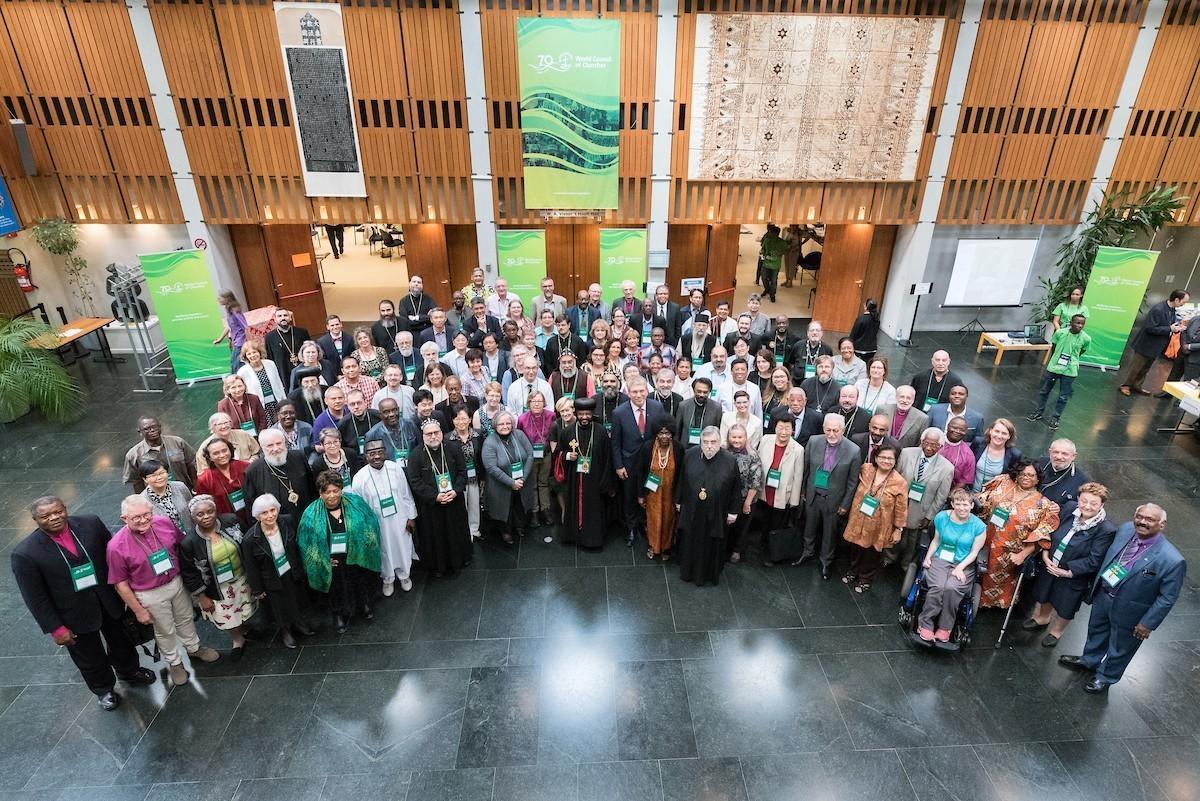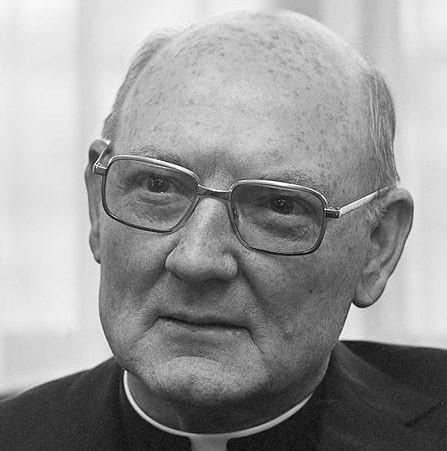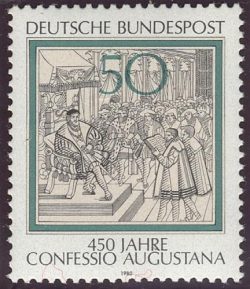From conflict to communion (2013)
After looking back on the past, the report of the Lutheran and Roman Catholic Commission on Unity made proposals for the 500th anniversary of the beginning of the Reformation in 2017.
Context
The document From conflict to communion was completed in 2013. It followed the joint declaration on the doctrine of justification by the Lutheran World Federation and the Catholic Church, signed in Augsburg on 31 October, 1999.
It was a report by the Lutheran and Roman Catholic Commission on Unity. The report aimed to prepare the commemorative year of the Reformation.
Content of the document
The foreword announced a text describing ‘a course from conflict to communion, whose goal we have not yet reached and suggested ‘being self-critical rather than critical of others’. We are presented with two challenges: ‘the purification and healing of memories, and the restoration of Christian unity in keeping with the truth of the Gospel.’
The 245 articles of the document comprise a foreword and six chapters.
In the foreword we were reminded that a dialogue was established in 1980 upon the 450th anniversary of the Augsburg Confession, and that ‘proposals for a commemoration and appropriation of the Reformation’ were meaningful.
Chapter I – Commemorating the Reformation in an Ecumenical and Global Age:
whereas the former centennial commemorations had a controversial character, new challenges have to be addressed in 2017 commemoration in the globalisation and secularisation contexts, so that the dialogue between Christians can be pursued and improved.
Chapter II – New Perspectives on Martin Luther and the Reformation:
the chapter deals with the evolution of the two Churches concerning their specific vision of the Reformation since it appeared in the late Middle Ages.
Chapter III –A Historical Sketch of the Lutheran Reformation and the Catholic Response:
the chapter looks back on the history of the Reformation in its political, economic and cultural context. It outlines indulgences, the trial against Luther, of missed opportunities, of the diet of Worms (1521), Augsburg confession (1530), councils of Trent (1545-1563) and Vatican II (1962-1965), as well as theological doctrines: scripture and tradition, justification, sacraments.
Chapter IV –Basic Themes of Martin Luther’s Theology in the light of the Lutheran–Roman Catholic Dialogues:
the chapter presents the conclusions of the dialogues between the two churches on four aspects of Luther’s theology: justification, Eucharist, ministry and connection between Scripture and tradition. It concludes that the dialogue should be pursued.
Chapter V –Called to Common Commemoration:
upon the commemoration of the five hundred years of the Reformation, both Churches had to confess their sins against unity, and to rejoice in the contribution the Reformation made on understanding the Gospel and God’s grace, but not at all to celebrate the division of the Western Church.
Chapter VI –Five Ecumenical Imperatives:
five imperatives were identified to jointly commemorate 2017:
- to always begin from the perspective of unity
- to be transformed by the encounter with the other
- to seek visible unity in concrete steps
- to jointly rediscover the power of the Gospel for our time
- to witness together to the mercy of God in service to the world
Significance of the document
After a critical review of the Reformation, the document testifies of a common need to progress on the way to unity.
Both Churches totally reject all forms of hatred or violence, in the past and in the present, especially those expressed in the name of religion. They pray for the healing of the traumas that darken our opinions of one another*. Both Churches acknowledge their pastoral responsibility: ‘we long for the healing of the wounds in the Body of Christ’. They commit themselves to developing humanitarian actions together.
Nevertheless, some discords remain between Catholics and Protestants concerning the Eucharist, the sacraments, the ordinated ministries, the pope.
Bibliography
- Documents
- Movies
Associated tours
-

Ecumenical progress
Ecumenism manifests itself at various levels and in different ways (meetings, agreements, joint actions) and involves partners of various Christian faiths, often on a bilateral basis. The present notice recalls...
Associated notes
-

Joint Declaration (1999)
The declaration on the doctrine of justification of the Lutheran World Federation and the Catholic Church signed in 1999, dealt with the doctrinal positions of the Lutherans and the Catholics...


